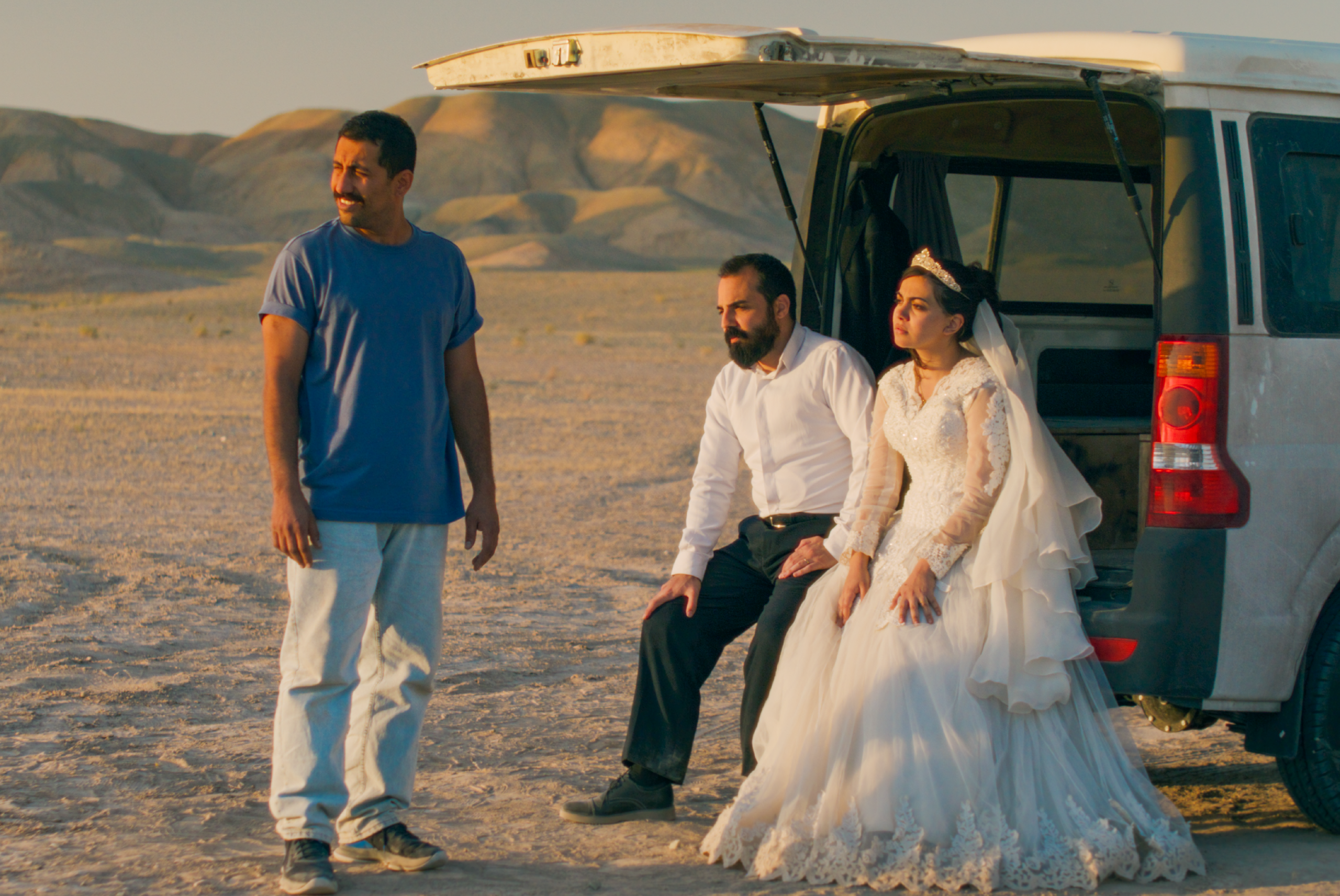
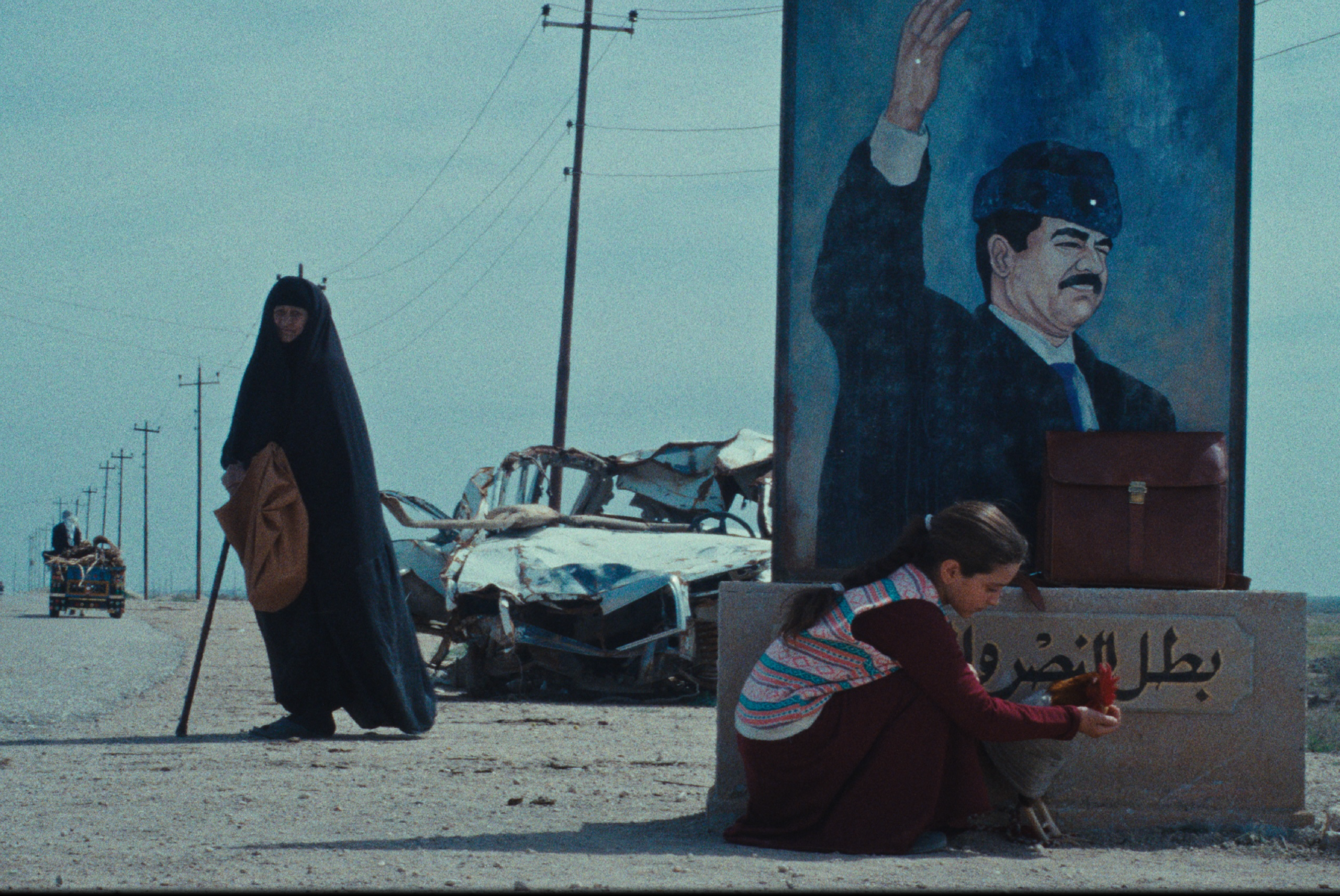
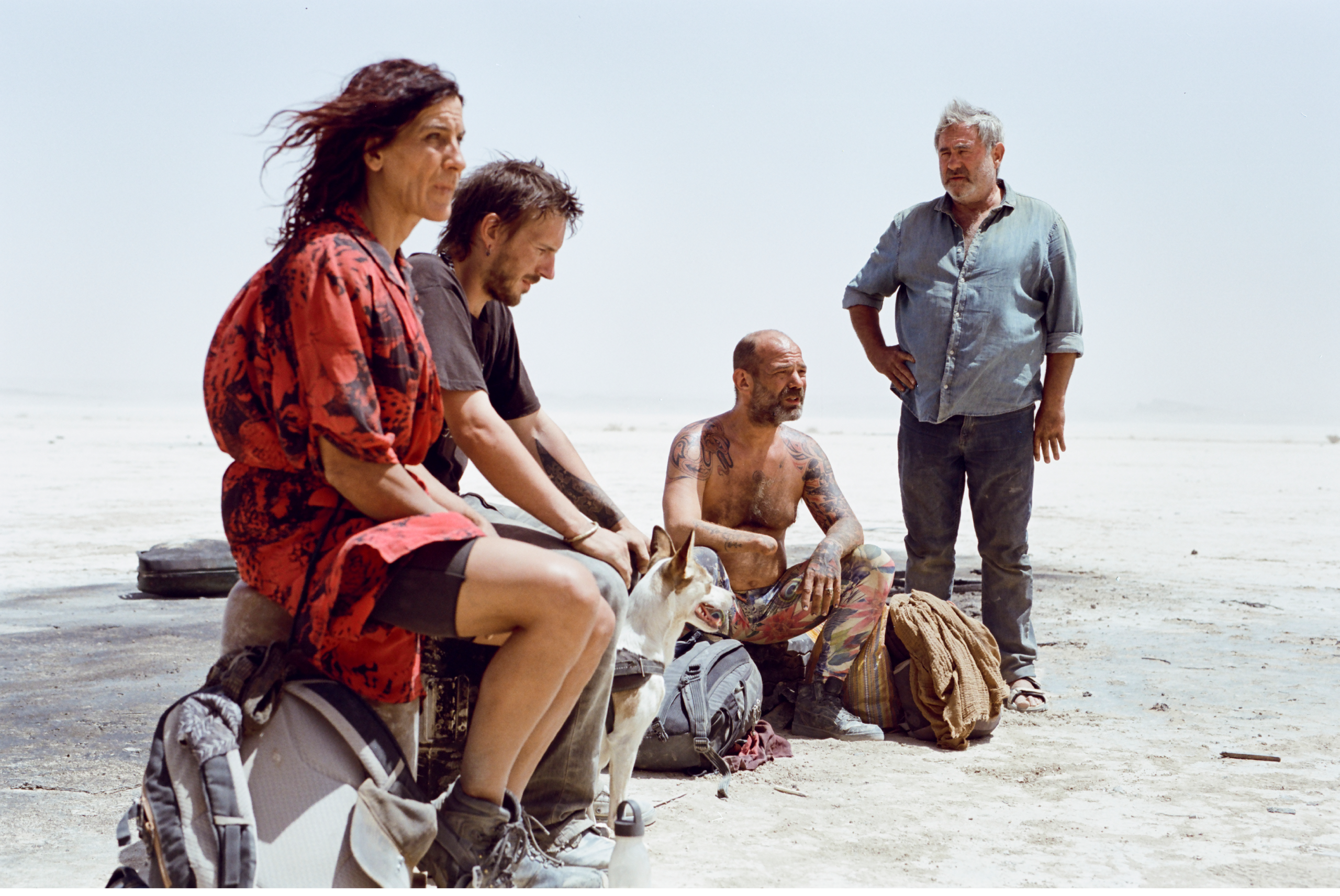
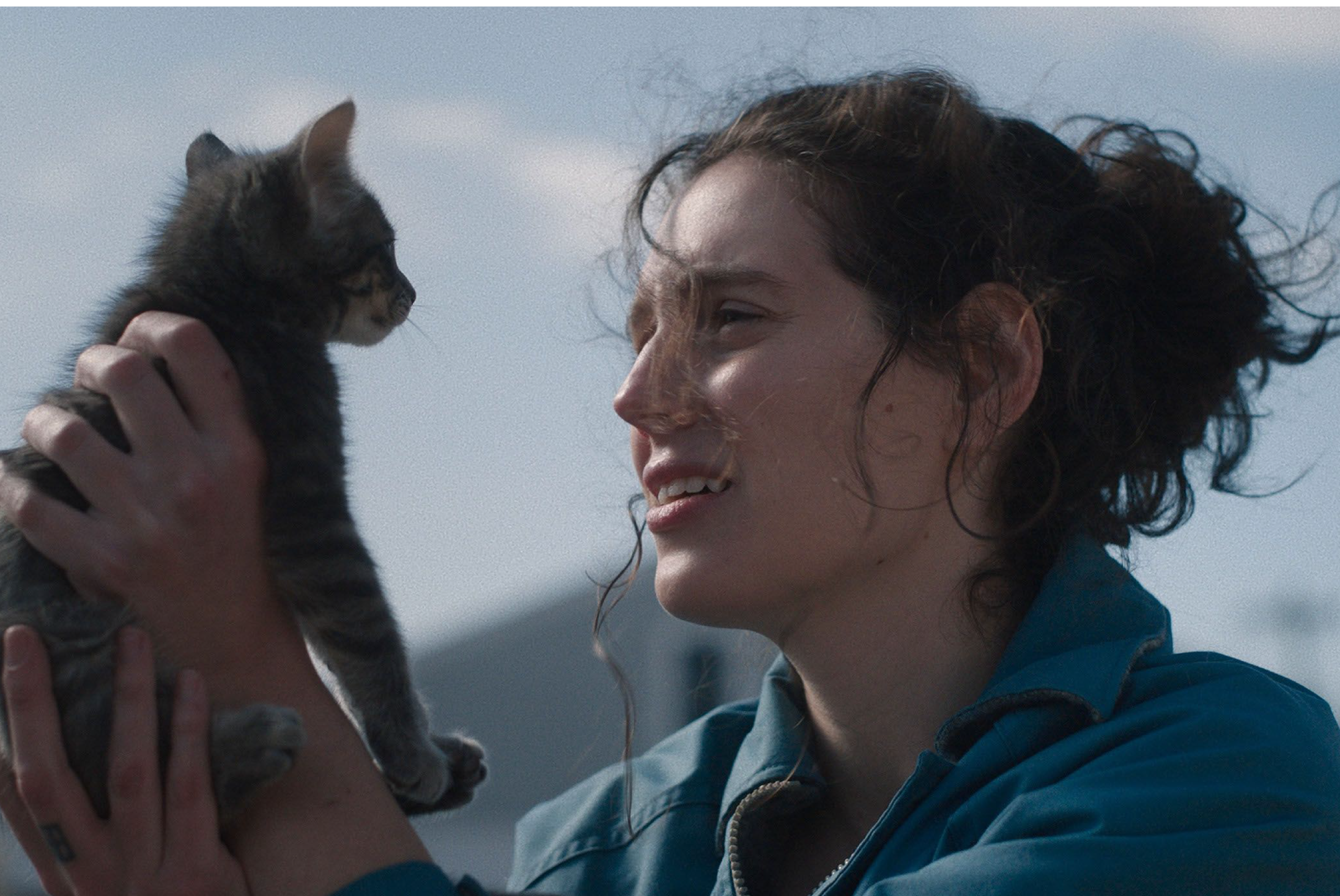
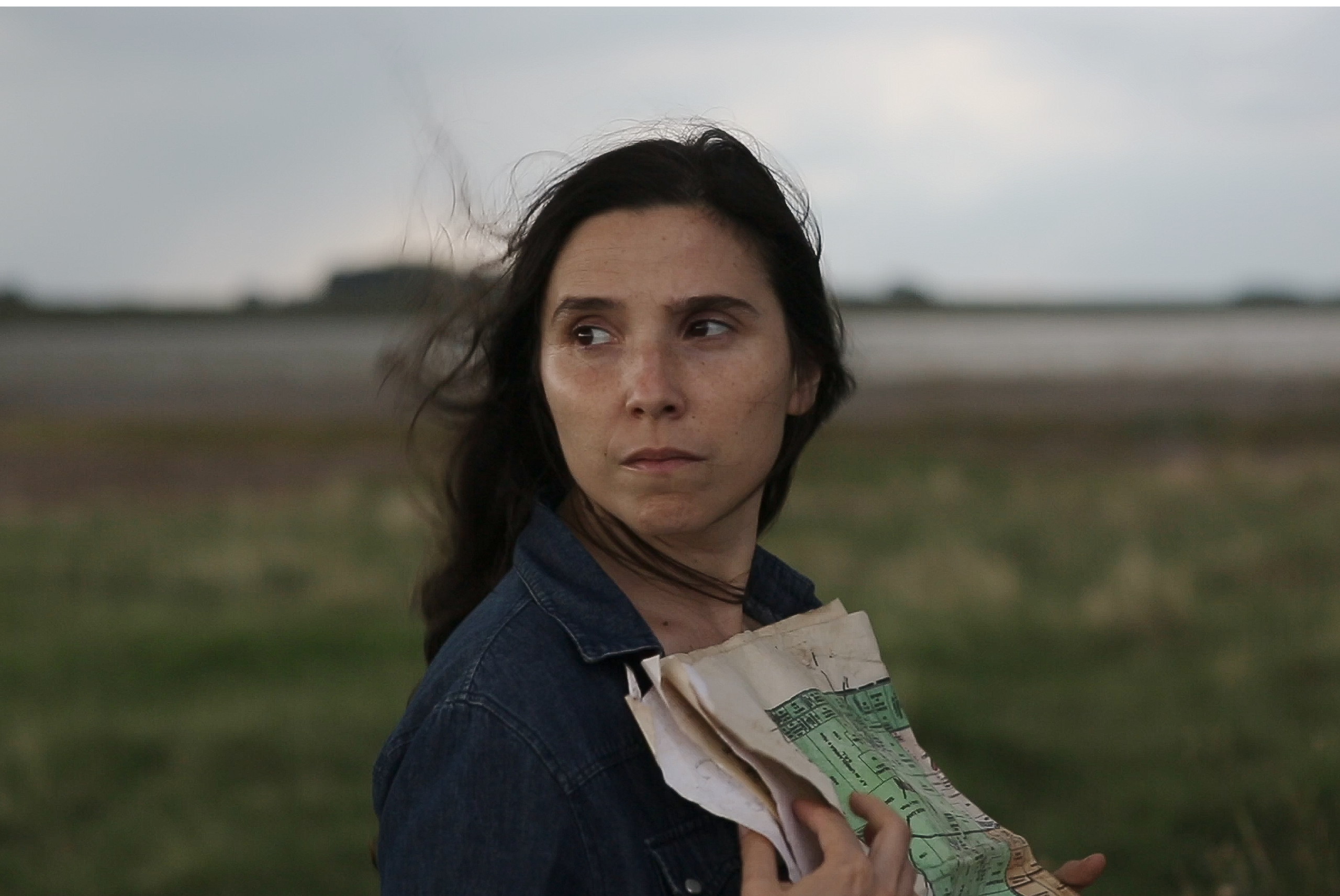
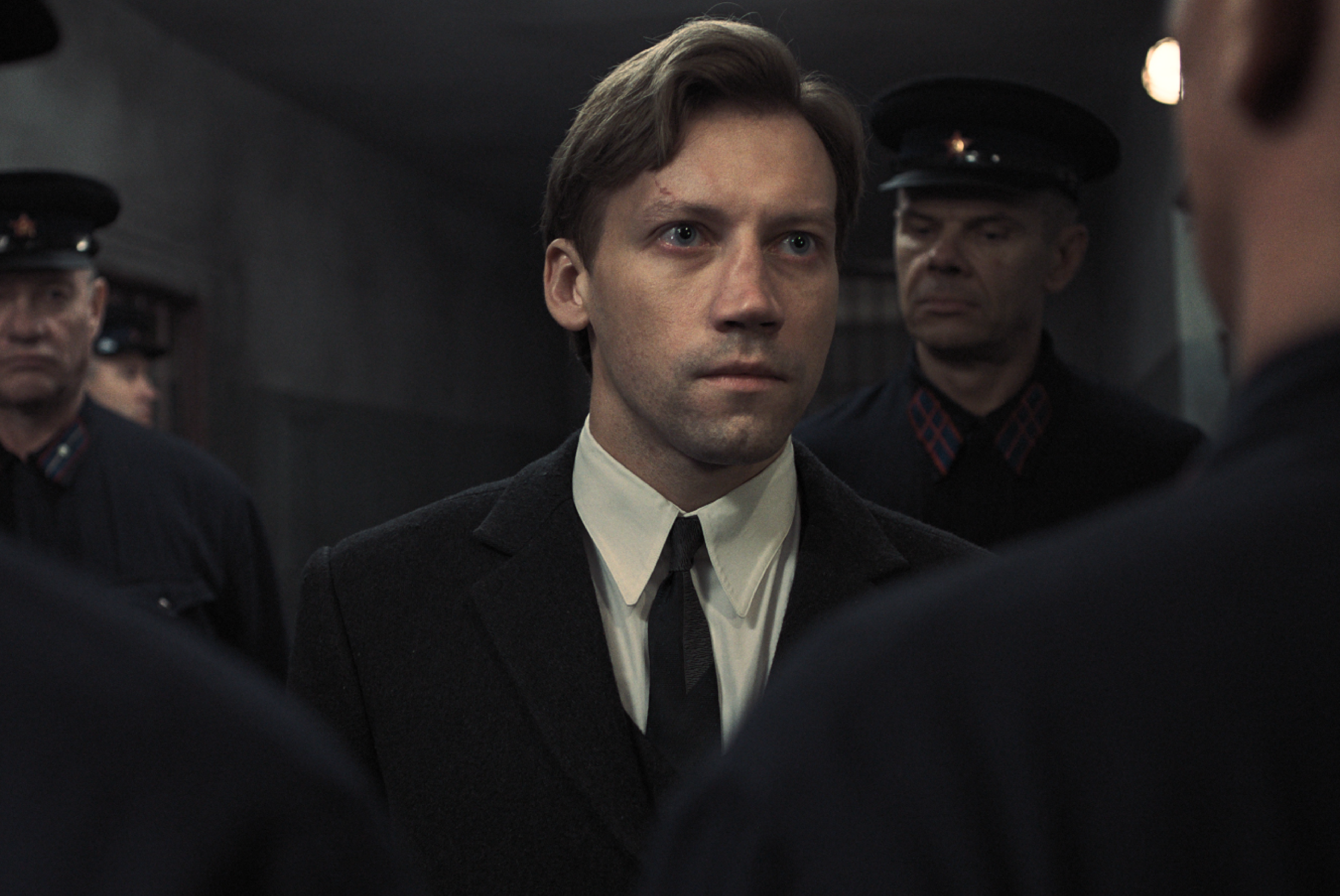
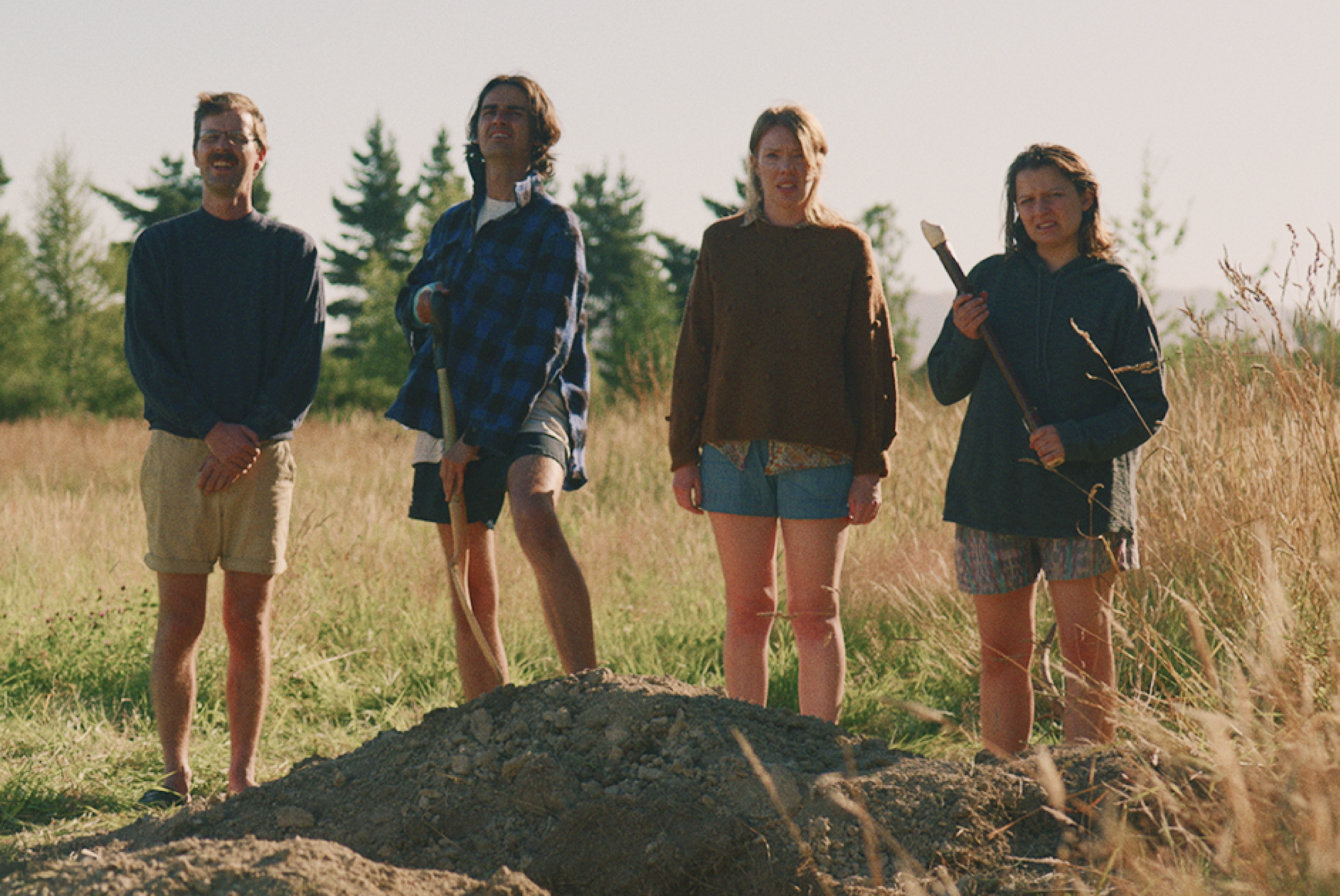
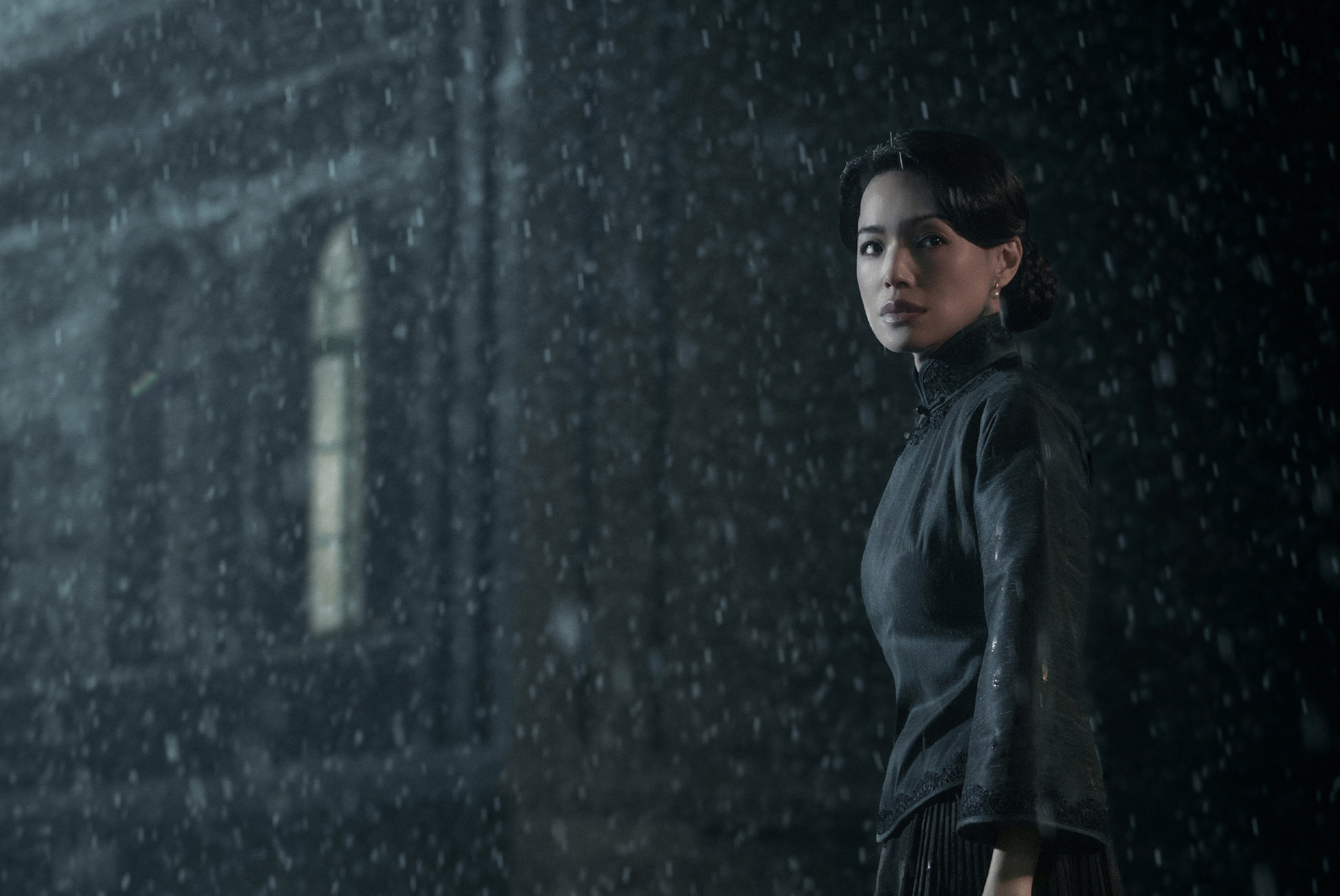
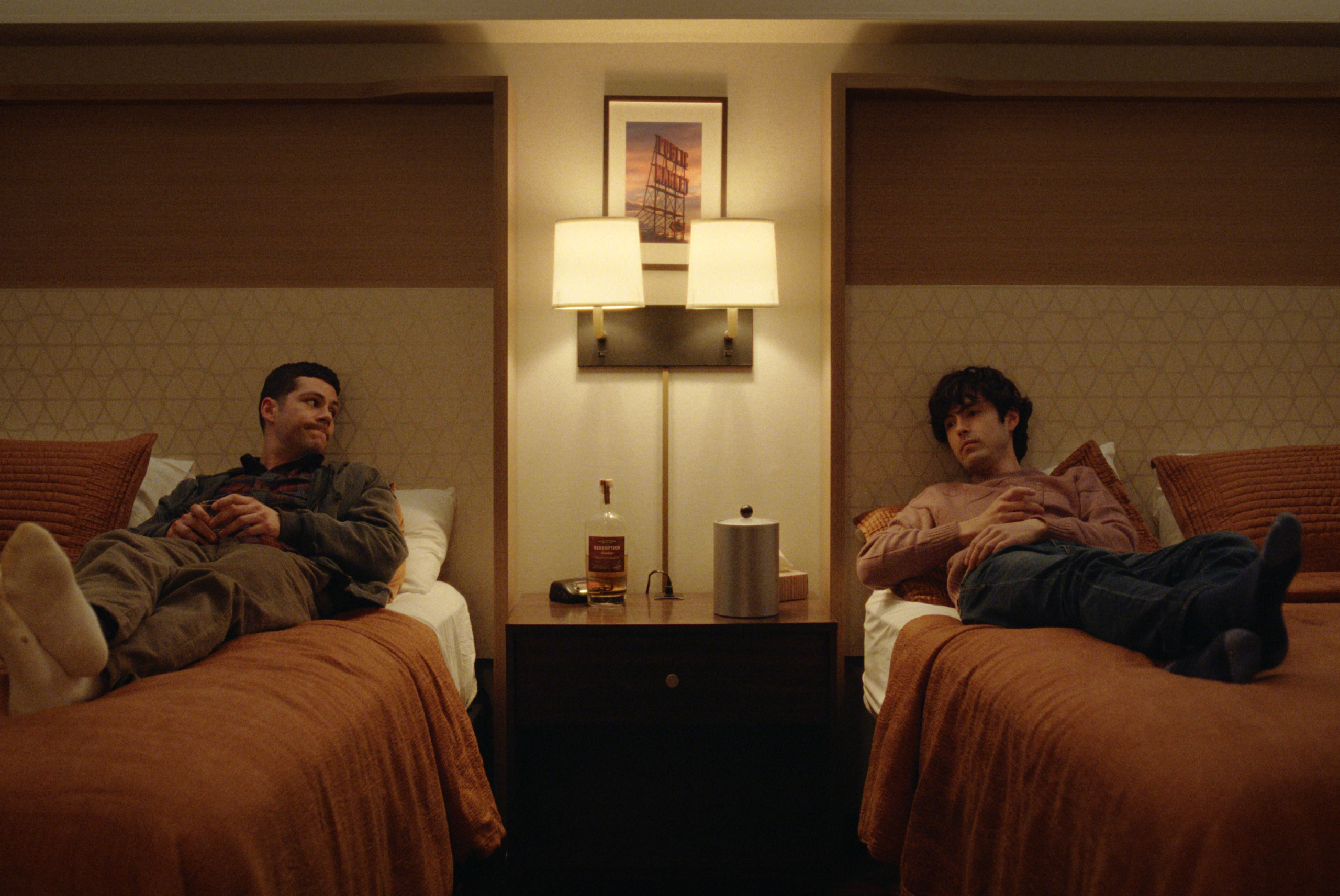
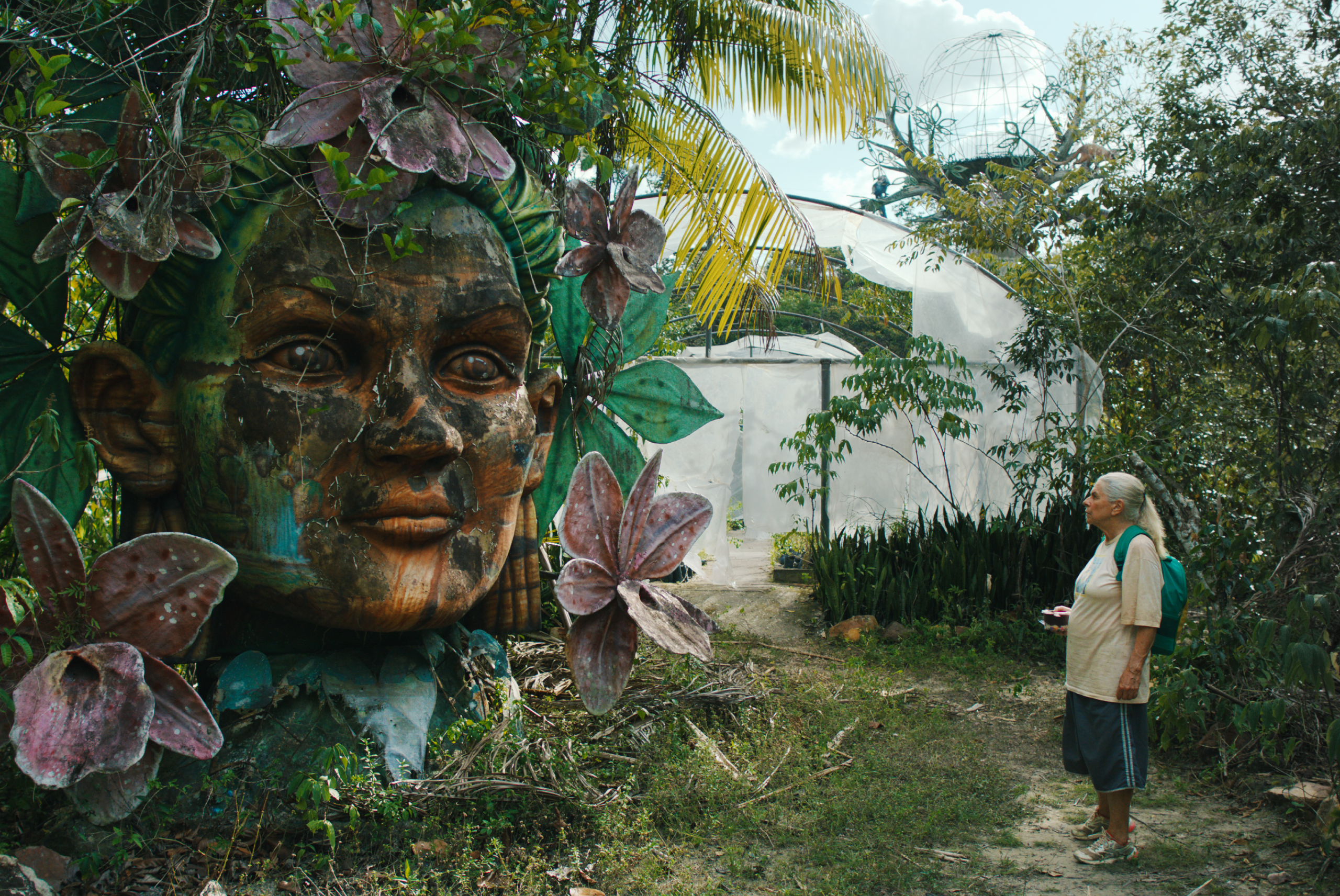
From auteurs to ingénues, blockbusters to microbudget oddities, here’s what we’ve been watching at this year’s edition of the New Zealand International Film Festival.
Written by Tom Augustine
It’s Christmas for Kiwi cinema-lovers. The New Zealand International Film Festival has weathered many storms in recent times, but it’s returned this year with an exceptionally promising programme. What follows are capsule reviews, assembled within waiting times on my packed screening schedule (over 35 this year). I won’t be reviewing classic restorations (sorry, The Texas Chain Saw Massacre, Werckmeister Harmonies and Hard Boiled – all certainly worth your time), and I’ll be saving my take on Ari Aster’s latest Eddington for its August release. Likewise, I’ve had the pleasure of watching a number of excellent films in the Festival before this week: Workmates (four stars), Blue Moon (four-and-a-half stars), Magellan (four-and-a-half stars), The Shrouds (four stars), Predators (four stars), Urchin (four stars), Harvest (four stars), The Love that Remains (three-and-a-half stars), Enzo (four stars), Magic Farm (three-and-a-half stars), Grace: A Prayer for Peace (four stars) and Crocodile Tears (three stars) to name a few. Expect to see some of these on my end of year Best Of list come December.
It Was Just an Accident (dir. Jafar Panahi
Rating: Four-and-a-half stars
Opening night of the Festival saw Iranian filmmaker Jafar Panahi’s Palme D’Or winner grace the silver screen, and it’s still one of the best things I’ve seen at this year’s Fest. It’s Panahi’s first film made free from the constraints of the Iranian government in years, having been variously imprisoned, threatened and banned from filmmaking for his outspoken opposition to the Islamic Republic. As with Mohammad Rassoulof’s Seed of the Sacred Fig, which played last year’s NZIFF, Panahi’s new film does not trade in subtlety, and positively vibrates with righteous anger. Ultimately, Panahi utilises this lack of subtlety to more poetic ends, the ‘Accident’ of the title referring to a series of coincidences that could be otherwise interpreted as fate, right up to the remarkable, deeply unsettling final sequence. For those who have followed Panahi’s work for years, it is a pleasure to see him reach this peak — he is a different kind of filmmaker to his mentor Abbas Kiarostami, arguably more commercial and outspoken, but the shadow of that great auteur nevertheless lingers in Panahi’s stories and his struggles.
The President’s Cake (dir. Hasan Hadi)
Rating: Four stars
A packed morning screening at the Bridgeway was the next stop for me — what it was about this deeply sad Iraqi film that drew such a large crowd of primarily seniors I don’t know, but it was an encouraging way to kick off festivities. Unlike their neighbour Iran, the cinema of Iraq has little cultural cache in the cinematic firmament — that’s not to say that there aren’t films made there, far from it, but that there has yet to be a coalescing of filmmakers and filmic style that really feels representative of the nation. Hasan Hadi’s debut feature offers a suggestion of what an Iraqi cinema on a global stage may look like, and how it may be different from their neighbours’ form. Strident, muscular and enraged, the story of a young, poverty-stricken girl named Lamia, tasked with baking a cake for Saddam Hussein at the height of his powers (under risk of death), Hadi’s film is an upsetting depiction of a cruel era that takes on Steinbeckian proportions, recalling The Bicycle Thieves in its simmering sense of injustice and grief. Hadi has found an exceptional talent in young actor Baneen Ahmad Nayyef, our eyes into this hard, every-man-for-himself world, where the unsparing greed of Iraq’s one-time leader trickles down to nearly every person Lamia encounters in her attempts to get the most basic ingredients. By film’s end, when archival footage of Hussein’s opulent birthday celebrations play against a backdrop of bombing and starvation, you’ll be seething, glad he’s dead.
Sirât (dir. Oliver Laxe)
Rating: Three-and-a-half stars
It might be fair to say this was my first real disappointment of the Festival, though Fire Will Come director Oliver Laxe’s film is hardly a failure, and is in fact quite good. Buzz from the Cannes Film Festival, where Sirât first appeared, was that the film was secretly the best of the Official Competition, the ‘cool’, ‘edgy’ choice against other, ‘worthier’ films vying for the title (another title with that rep, one that actually won the Palme, was the altogether underwhelming Titane). For the first half of Sirât, that assertion feels close to becoming a reality — a nightmarish descent into Burning Man-esque desert raves in Morocco, where slightly schlubby dad Luis (a very good Sergi Lopéz) seeks for his long-missing daughter with his younger son in tow. Embarking on a Heart of Darkness adventure into the desert, chasing a mythical secret rave, the pair team up with a motley crew of partiers that slowly morphs into a battle for survival against the elements, as a barely glimpsed global cataclysm unfolds around them. Sirât confidently evokes Sorcerer and The Wages of Fear in its tense, escalating series of ordeals, the isolated ravers battling the landscape’s harshness and often losing along the way. There’s more than a hint of Mad Max, too, in the depiction of punkish, leather-clad kooks wandering the arid landscapes. After a jaw-dropping twist midway through the film, Sirât begins to transition into bleak, existential nihilism, and to feel like it’s run out of ideas or places to go. By the film’s denouement, the story’s rhythms become gruelling, even exhausting, and I couldn’t shake the feeling that Laxe seemed intent on punishing his audience — not necessarily a bad thing, but with an aimlessness that didn’t live up to the film’s ample potential.
Sorry, Baby (dir. Eva Victor)
Rating: Two stars
Landing with a thud after two fascinating aforementioned efforts earlier in the day, writer-director-star Eva Victor’s overpraised Sorry, Baby marked my only real dud of my Festival so far. Coming to us from Sundance, where it made a big splash, it’s exactly the kind of film that Festival is known for, built around a singular personality and designed as a vehicle for them, but which finds said creative overstretched in almost every department, leading to a work less accomplished than it could have been. The story of a young creative writing college student named Agnes who grapples over time with an assault committed by her advisor (an appropriately slimy Louis Cancelmi), the film is clearly derived from personal experience, but largely fails to find new or interesting ways into its subject matter. The likes of Girls and Fleabag seem to be big influences on Victor’s effort, as well as Kenneth Lonergan’s Manchester By the Sea, with which Sorry, Baby shares a similar wintry New England aesthetic, but Victor’s film fails to inject the scathing emotional immediacy of those superior works. This largely comes down to the screenplay, which is tentative when it should be cutting, and focuses on elements that feel inconsequential or less interesting than they could otherwise be. Alison Willmore’s very good Vulture review on the film hits the nail on the head — the film is less interested in excavating who Agnes is than relitigating (and, in Willmore’s words, enshrining) the act of the rape in her life, a disappointing and unfulfilling narrative choice.
Trenque Lauquen (dir. Laura Citarella)
Rating: Four-and-a-half stars
I ventured down into Academy Cinemas for the first time this Festival to finally clap eyes on Laura Citarella’s four-and-a-half hour low budget epic. The Argentinean filmmaker, a member of cinema collective El Pampero Cine (most well-known for their eight-hour epic La Flor), made Trenque Lauquen all the way back in 2022, and it has taken this long for the film to finally reach our shores. The relatively sparse audience who ventured out that day to watch Trenque Lauquen were justly rewarded — Citarella’s dense, dreamlike, romantic and mysterious fable, which concerns itself with a missing botanist and the two men intimately involved with her, who team up to find her, makes exceptional use of its novelistic running time to craft a Matryoshka doll narrative, in which mysteries bloom outward into other mysteries, which in turn bloom again into other mysteries. It’s a striking work of digital cinema — filmed on cameras that don’t appear to be state of the art, the film conveys a handmade authenticity that adds to the feeling of watching something exceedingly rare and special. Along the way, Citarella dives deep into questions of identity and the fracturing of self, placing her film alongside era-defining masterworks like Mulholland Drive, Persona and 3 Women. All films made by men, about women — in Citarella’s telling, such fracturing is not the cause of anguish, though, but catharsis and release. Agnes Varda’s film Vagabond also feels like a telling reference, though Citarella’s intense interest in an adrift, wandering soul has altogether stranger and more elusive points to make.
Two Prosecutors (dir. Sergei Loznitsa)
Rating: Four stars
The Lido was nearly sold out for this screening of Russian filmmaker Sergei Loznitsa’s austere, chilling evocation of the Stalinist regime in the late 1930s. You could have heard a pin drop throughout — Loznitsa’s film arrives sans music, and yet its craft is so profoundly absorbing that it became difficult to look away at all. The story of a young, idealistic prosecutor (Aleksandr Kuznetsov) who seeks to speak to a prisoner locked away in one of Stalin’s jails, the entire first half of the film takes place within the walls of the brutal, concrete-clad prison before expanding outward to the no-less claustrophobic confines of the Moscow judiciary. Loznitsa’s film is severe and plainspoken — there’s little to take away from this film beyond the understanding of the evils of the Stalinist era and a warning that such a time could well come again — but the filmmaker is in such command of his storytelling that the inevitability of plot’s progression rarely undercuts the tension. Two Prosecutors is deeply interested in processional movement — characters manoeuvre through labyrinthine spaces, whether that be the prison or the palatial government offices of Moscow, the camera following them through endless corridors and doorways with patient, hermetic focus. By the film’s end, when the labyrinth reveals itself to have no exit but just another door back inside, the cumulative effect is devastating.
The Weed Eaters (dir. Callum Devlin)
Rating: Four stars
I had seen many very good Kiwi films premiering at the Festival ahead of time, including Workmates and Grace: A Prayer for Peace, but I was glad to be able to be at the premiere of The Weed Eaters, the chaotic and lively crowd really adding to the devilish atmosphere of Kiwi cinema quartet Sports Team’s ultra-low-budget debut. Directed by Callum Devlin, the film stars Alice May Connolly, Annabel Kean, Samuel Austin and Finnius Teppett as a group of twenty-somethings who retreat to an isolated country bach (read: garden shed) for New Years celebrations, only to find themselves under the influence of a strain of weed that turns them into cannibals. Shot on the smell of an oily rag, the film’s lack of polish is part of the appeal — as is the scrappy, improvisational feel of the narrative’s many twists and turns. It’s also very funny — and crucially, doesn’t stop being funny over the course of its eighty minute runtime. A lot of this is down to the committed performances. I was particularly taken by Kean, who delivers a turn that layers in seductiveness and ferocity in equal measure, until they feel like one and the same. Stretches of the film are visually superb as well, whether it’s capturing the rural splendour of Canterbury or delving into vivid nightmare imagery (as in the film’s best sequence, which is lit entirely by camera flashes).
Resurrection (dir. Bi Gan)
Rating: Four stars
‘A love letter to cinema’ is not an appealing description to me. I’ve seen Cinema Paradiso, Hugo, Singin’ in the Rain and Once Upon a Time… in Hollywood. We have enough love letters to stuff a letterbox full and then some. Bi Gan, visionary Chinese director behind 3D spectacle Long Day’s Journey Into Night has crafted his own love letter with Resurrection, but the film is closer in style to something like Leos Carax’ 2012 masterpiece Holy Motors, landing somewhere between an affectionate deep dive into cinematic movements, a post-mortem of the 20th Century cinema now long gone, and an anthology of deeply strange, only vaguely connected short stories. The story, as far as I could parse it, is about a world in which dreaming has been outlawed, and those who refuse to stop dreaming (known as ‘Fanatsmers’) do so through the utilisation of cinema. From there we dive into various ‘dreams’, which just so happen to be evocations of different cinematic genres and styles. Everyone I’ve spoken to about this film has had a different feeling about which of these segments works best, whether it be the noirish wartime detective story, the sweet story of a drifting conman who connects with a young girl, the story of a man abandoned at an ancient monastery, haunted by the ghost of an old monk, or a vivid vampire story conveyed in a single, mindboggling shot. My personal favourite is the last of these, rendered in a blood red tint, as well as the jaw-dropping opening sequence, which depicts the world outside the dreams as its own kind of dream space, one that mimics the expressionistic style of German silent films like The Cabinet of Doctor Caligari. For the entirety of that opening sequence, I was convinced I had stumbled on the very best film of the Festival. The film’s disjointed and disconnected atmosphere stops the film from reaching the heights it otherwise could — but there are images in here that seem nigh on impossible to achieve, totally unlike anything else you’ll see this year.
Twinless (dir. James Sweeney)
Rating: Four stars
For the first fifteen or so minutes of Twinless, I felt like I had learned all I needed to know about it— what was to follow was a lightly funny, quirky tale of connection between two twins who lost their brothers, but gained a friendship via a twin loss support group. So far, so very Sundance. Then, around the time the late-breaking title appears, the story shifts, and becomes something else entirely. Writer/director/star James Sweeney’s cunning screenplay, which layers in elements of story that initially seem like mildly amusing asides, only to take on new resonance soon after, turns a moving examination of an experience that is known only to a vanishingly rare group of people, then morphs it into something akin to a psychological thriller, only to then bend back toward its original conception as the film approaches its ending. If Asghar Farhadi had directed (500) Days of Summer, the result might look something like Twinless. At its centre, one-time Maze Runner star Dylan O’Brien delivers a genuinely flooring, Oscar-worthy performance as twin brothers Rocky and Roman. Rocky, who has had a strained relationship with Roman since coming out as gay, is struck by a car and killed in an accident that drives Roman to said support group. There he meets Dennis, also mourning the death of his twin brother. Sweeney is not quite the actor that O’Brien is, but proves a solid foil (while his script and direction excels), happy to cede to O’Brien’s remarkable, lived-in characters, who guide us through joy, grief, rage and seductiveness with ease. In a supporting role, The Nightingale’s Aisling Franciosi is every bit O’Brien’s equal — playing Dennis’ work frenemy (and Roman’s eventual love interest) Marcie, it’s a joy to see Franciosi, who is most-known for her work in horror, sinking her teeth into a role which demonstrates her excellent range. It is the definition of a star-making performance.
The Blue Trail (dir. Gabriel Mascaro)
Rating: Two stars
The winner of the prestigious Silver Bear at the Berlin Film Festival, Brazilian filmmaker Gabriel Mascaro’s lightly sci-fi inflected tale of a future Brazil where the elderly are removed from society and sent to a colony apart from the rest of the populace felt initially like it’d be a welcome cleanser, at a slim ninety minutes, for the bloated runtimes I’d been experiencing up to that point. Instead, it turned into a timely reminder that runtimes are ultimately meaningless signifiers, and some of the shortest films can be unbearable slogs, while long films can fly by in an instant (see Eddington, Afternoons of Solitude). Mascaro’s film, which follows flinty 77-year-old Teca as she attempts to evade authorities that wish to send her away, has a tantalising premise, but never finds a way to bring it to life. Instead, the drearily episodic The Blue Trail simply trudges along behind Teca as she moves from one lightly amusing shenanigan to another, facing setbacks that feel largely devoid of tension. The key issue is that we never see the colony that the film tells us Teca is desperate to avoid. We can intimate what awaits her, but it remains too abstract of a threat, a symbolic stand-in for the way society treats its elders rather than a tangible reality of Mascaro’s science fiction world. The Blue Trail felt like it had petered out before the half way point — when I glanced at my watch and saw we still had upwards of 45 minutes to go, I despaired.
Afternoons of Solitude (dir. Albert Serra)
Rating: Five stars
The only R18 film at the Festival, provocative visionary filmmaker Albert Serra returns to the Festival after his brilliant Pacifiction with his first documentary, which follows Peruvian matador Andrés Roca Rey as he conducts bullfights across Spain. The film, already controversial, was introduced by Festival director Paolo Bertolin, who mentioned that Serra bypassed the major Festivals to premiere the film in its home country at the San Sebastian Film Festival. Whether or not it would be more warmly received there is a tantalising unknown — Serra himself has said that Roca Rey sent lawyers after the filmmaker, furious at how the corrida de toro was depicted in Solitude. And yet, Serra has repeatedly avowed his refusal to take a stance on the sport (or is it an art form?), in the meantime crafting a film every part the equal to Hemingway’s Death in the Afternoon, the other major work that takes corridas as its subject. Afternoons of Solitude is exceedingly graphic, frequently hard to watch. The death of the bulls is captured in patient, harrowing detail, as Serra and frequent cinematographer Artur Tort imprison the viewer in a claustrophobic litany of images of bloodletting and preening masculine showmanship, often through the use of bombastic zoom lenses. During the bullfights, the camera rarely leaves the action of the ring, and the crowd is never seen, only heard. The only time we spend outside of the ring is in Roca Rey’s limousine headed to and from fights, with his overpraising entourage in tow, or in various hotels and changing rooms, getting adorned in the finery of his traja de luces (‘suit of lights’). The fights are frequently heartstopping, with both man and beast facing the spectre of death head-on, with only one allowed to walk free at the end. The film has been variously venerated and condemned, and claimed by both sides. There are some who see the film as a vivid celebration of an art form intimately tied to religious ritual and cultural expression. There are others who see it as a hellish descent into death and violence, pointing to the clear parallels between the corrida and the rituals of fascism — violence as the end-point, not the means; the inevitability of the bulls’ fate, even if he survives the ring; the hypermasculinity and latent homoeroticism of it all. One imagines cabinet meetings with neo-fascist du jour Donald Trump probably proceed in quite a similar fashion to Roca Rey’s limo rides, as he is regaled by yes-men crowing his many achievements. What makes Afternoons of Solitude a remarkable achievement is not that it demurs or evades the truth of either statement, but that it sits comfortably within them, inviting us to squirm at the terrible paradox he’s created.
Romería (dir. Carla Simón)
Rating: Three stars
An autobiographical film is a fraught thing — too often a filmmaker, when rendering their own story, uses kid gloves in handling their own persona, sanding away the sharp edges and messy elements that would be better explored through the veil of fiction. Such is the case with Carla Simón’s Romería, a beguiling and lowkey film not without its fair share of pleasures, but with a void of a character standing in for Simón herself guiding the story. The film concerns eighteen-year-old Marina (an intriguing Llúcia Garcia), orphaned from an early age, who attempts to discover the truth of her deceased parents by reconnecting with her father’s extended family in their island neighbourhood, where Marina’s parents once lived before succumbing to the AIDS virus. As with Simón’s excellent previous efforts Summer 1993 and Alcarràs, the film proceeds at a leisurely pace, gradually revealing its emotional landscape through the tensions and remembrances of a vast family unit. There’s something of Charlotte Wells’ Aftersun in Simón’s sun-drenched excavation of personal memory, rendered as it is frequently through the use of dead-tech handicams. Romería, though, is not nearly as cutting as Aftersun, nor the filmmaker’s own previous work. Her Marina remains a cipher and, through her devout refusal to get into trouble (including rejecting drinking, smoking, or ruffling feathers), a bit of a drag. The film’s epilogue, which finally tells the story of Marina’s parents, rendered in 16mm film stock, raises the pulse slightly, allowing Simón to dabble in dreamlike imagery and offering new shades to her star (who also plays her mother). It’s enough to leave a pleasant aftertaste, but not quite enough to elevate Romería’s otherwise too-mild flavour journey.
Put Your Soul on Your Hand and Walk (dir. Sepideh Farsi)
Rating: Five stars
I have had a range of experiences at the Festival thus far, from the heartrending to the heartwarming, but no film gave me full body shakes like I had walking out of Iranian filmmaker Sepideh Farsi’s documentary Put Your Soul on Your Hand and Walk. I also don’t know what to say, really, except that you must go and see the film for yourself. As much as it is a mighty work of cinema, it is more so a primary document of a life, a strident rebuke of Israel’s attempts to erase the lives and memories and hope of the people of Gaza. It is, in a sense, akin to The Diary of Anne Frank — the irony is not lost on me. Anyone who watches Put Your Soul will likely know how it ends — even if you didn’t see the headlines, the awareness of the situation in Gaza and the genocidal force that occupies it would be enough to give you a sense of what to expect — which makes every time filmmaker Farsi connects with young, kindhearted photographer Fatem Hassan in Gaza all the more precious, tentative and wrenching. At times, the terrible internet connection in Gaza causes Fatem’s video itself to slow down, even freeze, as though the phone itself can’t bear to let time move at its ordinary pace. The film’s repetitive rhythm — a lengthy conversation between the two artists, a montage of Hassan’s indelible photographs, footage of the news, repeat — is its own hypnotically devastating instrument; like Akerman’s Jeanne Dielman, the disruption of that rhythm near the end of the film is groundshaking (another Akerman film, No Home Movie, which utilises similar digital, phone-bound methods to excavate personal stories, feels like an important precursor). It is difficult to assess Put Your Soul against the normal standards of cinema, as with last year’s No Other Land. All I can say is that in the time since October 7, it has become very easy to ignore the genocide, to keep it out of your algorithm if you’re so inclined. Put Your Soul opens up like a chasm of grief, one which I think we all owe ourselves the experience of sitting through.
As we descend into the final weekend of the Festival, many fascinating titles remain on the cards — prolific German auteur Christian Petzold’s Mirrors No. 3; Kelly Reichardt’s take on the heist movie The Mastermind, starring Josh O’Connor; I Am Not Your Negro director Raoul Peck’s Orwell: 2+2=5; sweeping German Cannes darling The Sound of Falling; the purportedly quite Lynchian Reedland; Australian animated film Lesbian Space Princess; master provocateur Radu Jude’s Kontinental ‘25; sprawling Brazilian epic The Secret Agent; soulful realism from the Dardennes in Young Mothers; melancholy supernatural flick A Useful Ghost; and the return of The Worst Person in the World’s Joachim Trier with Sentimental Value. What a range — what a great chance to catch some incredible cinema. Don’t miss out.

